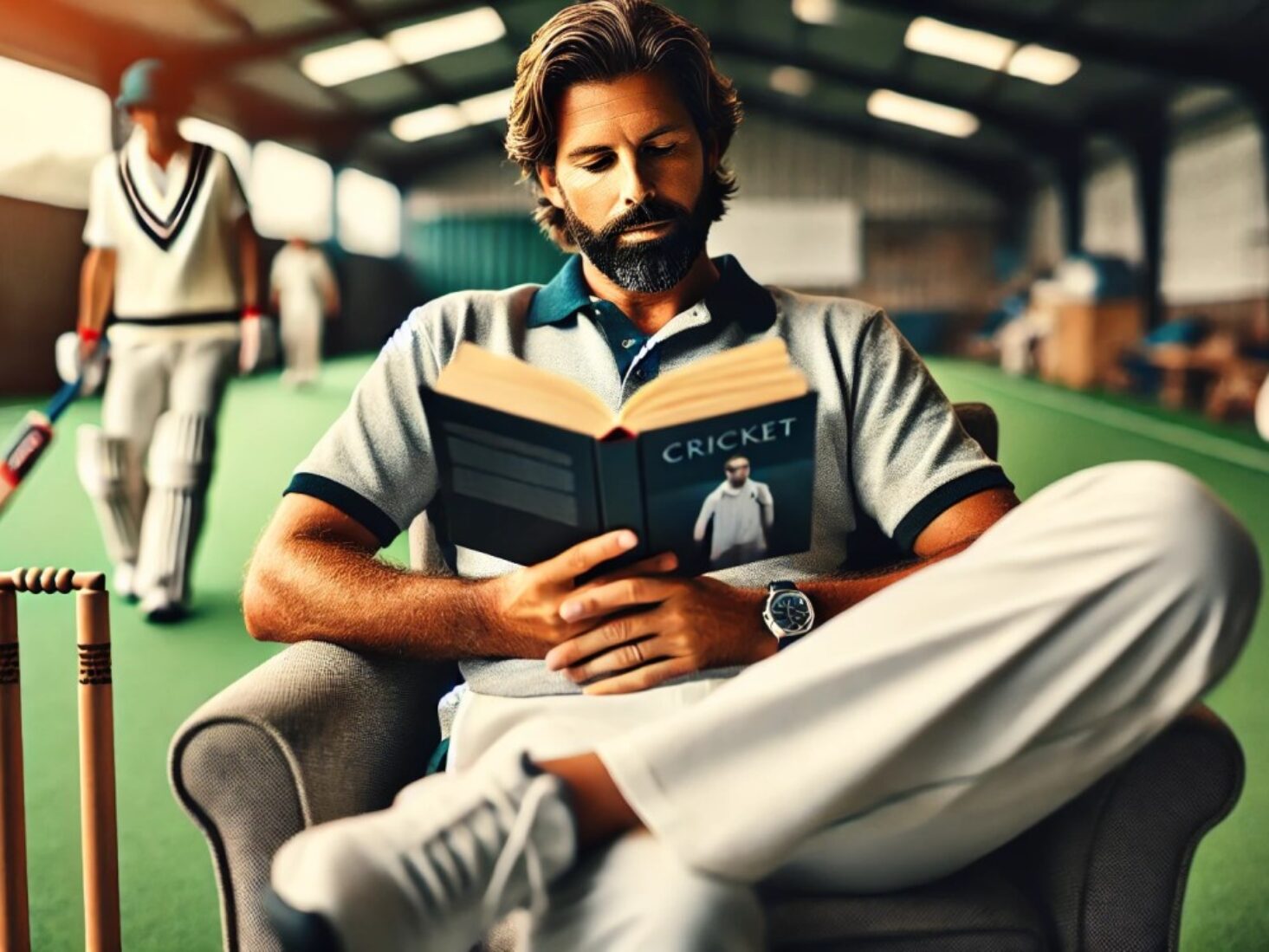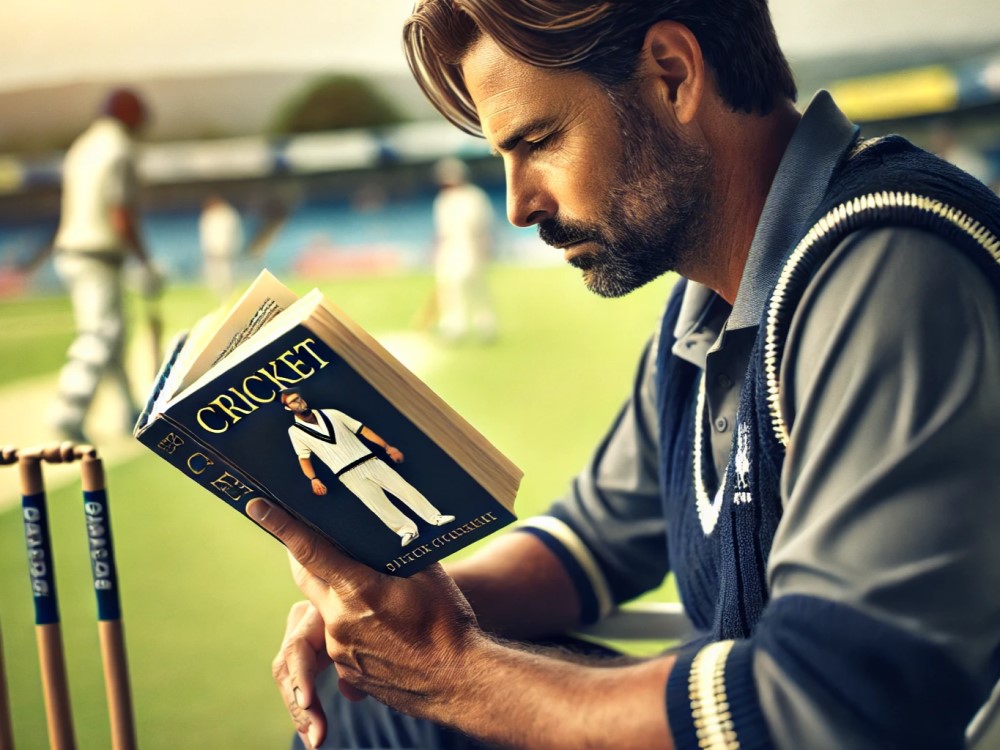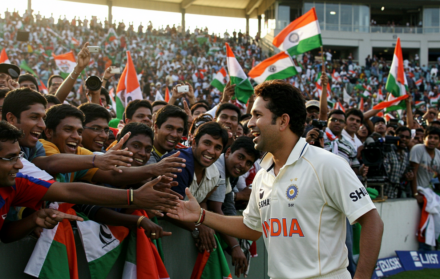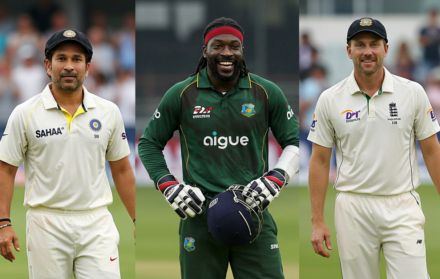
The Best Cricket Coaching Books for Aspiring Coaches
Coaching cricket is an art that goes far beyond just understanding the game; it’s about molding players, fostering teamwork, and building strategies that lead to success. For aspiring coaches, finding the right resources to guide them on this journey is crucial. That’s where the best cricket coaching books for aspiring coaches come into play. These books serve as invaluable tools, offering insights, strategies, and techniques that can transform a novice coach into an expert.
Understanding the role of a cricket coach is the first step in this journey. A coach is not just a trainer; they are a mentor, strategist, and motivator. The right cricket coaching book will help an aspiring coach grasp these multifaceted responsibilities, providing them with the knowledge to nurture talent and build a cohesive team. These books delve into the nuances of coaching, covering everything from game strategies to player management, and ensuring that a coach is well-equipped to handle the demands of the role.
For those who are particularly focused on developing young talent, understanding the fundamentals of coaching techniques for kids is essential. Coaching young players requires a different approach, one that balances technical skill development with the encouragement of a love for the game. Books that specialize in coaching techniques for kids often emphasize patience, communication, and the importance of creating a positive learning environment. These resources can guide aspiring coaches in making cricket enjoyable and educational for young athletes, laying a strong foundation for their future in the sport.
Moreover, cricket is a game of specialization, and understanding the intricacies of different roles within the team is crucial for a coach. For example, the role of the bowling coach is distinct and requires a deep understanding of bowling techniques, strategy, and player psychology. Books that focus on these specialized areas can provide detailed insights that help coaches refine their players’ skills, whether they are bowlers, batsmen, or fielders. By mastering these areas, coaches can offer more tailored guidance and support to their players, helping each athlete reach their full potential.
In the quest to become a successful cricket coach, these books not only offer tactical knowledge but also inspire a deeper connection to the game. They encourage coaches to think creatively, to adapt to different players’ needs, and to build a team spirit that can drive success both on and off the field. Whether you are just starting out or looking to refine your coaching style, investing time in the right cricket coaching books can make all the difference in your coaching career.
Ultimately, the journey to becoming an effective cricket coach is one of continuous learning. By delving into the best cricket coaching books, aspiring coaches can equip themselves with the tools, knowledge, and inspiration needed to lead their teams to victory. These books are more than just guides; they are companions on the path to coaching excellence, helping to shape the next generation of cricket talent.
“The Art of Cricket” by Sir Donald Bradman: A Classic Coaching Guide

When it comes to cricket coaching books, few can match the timeless wisdom found in “The Art of Cricket” by Sir Donald Bradman. As one of the greatest cricketers of all time, Bradman’s insights into the game have shaped generations of players and coaches. This book, originally published in 1958, remains a cornerstone of cricket literature, offering valuable lessons on technique, strategy, and the mental aspects of the sport. Aspiring coaches will find this book to be an essential resource, providing a deep understanding of cricket from a master of the game.
“The Art of Cricket” covers a wide range of topics that are crucial for any coach looking to improve their players’ skills. Bradman delves into the technical aspects of batting, bowling, and fielding, breaking down each skill into its fundamental components. His clear explanations and step-by-step instructions make it easy for coaches to teach these techniques to players at all levels. Whether you’re working with beginners or more advanced cricketers, the principles outlined in this book provide a solid foundation for skill development.
What sets this book apart is Bradman’s emphasis on the mental side of cricket. He discusses the importance of concentration, patience, and confidence, offering practical advice on how to cultivate these qualities in players. For aspiring coaches, understanding the psychological aspects of the game is just as important as mastering the technical skills, and “The Art of Cricket” provides valuable guidance in this area. Bradman’s insights into the mental challenges faced by cricketers are particularly useful for coaches looking to help their players stay focused and perform under pressure.
In addition to its technical and mental training content, “The Art of Cricket” also offers a fascinating glimpse into the history of the sport. Bradman shares his experiences and observations from his illustrious career, giving readers a unique perspective on how the game has evolved. This historical context can be invaluable for coaches, helping them to appreciate the traditions of cricket while also adapting their coaching methods to the modern game.
Overall, “The Art of Cricket” by Sir Donald Bradman is a must-read for any aspiring cricket coach. Its combination of technical instruction, mental training advice, and historical insight makes it one of the best cricket coaching books available. Coaches who study this classic guide will gain a deeper understanding of the game and be better equipped to lead their players to success.
“Cricket (Know the Game)” by England and Wales Cricket Board: A Comprehensive Approach
For aspiring cricket coaches who are looking for a modern and comprehensive approach to coaching, “Cricket (Know the Game)” by the England and Wales Cricket Board (ECB) is an invaluable resource. This book offers a structured and systematic guide to coaching cricket, covering everything from fundamental techniques to advanced strategies. As the governing body for cricket in England and Wales, the ECB has developed a coaching philosophy that is both progressive and effective, making this book a top choice for coaches who want to align their methods with current best practices.
“Cricket (Know the Game)” is designed to cater to coaches at all levels, from those working with junior players to those coaching at the elite level. The book is divided into sections that cover key aspects of cricket coaching, including batting, bowling, fielding, and wicketkeeping. Each section provides detailed explanations of techniques, drills, and practice routines, allowing coaches to develop their players’ skills in a structured and efficient manner. The step-by-step approach ensures that coaches can easily adapt the exercises to suit the needs of their players, whether they are beginners or more experienced cricketers.
One of the strengths of this book is its focus on player development and long-term athlete development (LTAD). The ECB’s coaching philosophy emphasizes the importance of nurturing young talent and providing a clear pathway for players to progress through the ranks. The book includes guidance on how to create a positive and supportive learning environment, how to set realistic goals for players, and how to track their progress over time. This holistic approach to coaching is particularly valuable for aspiring coaches who are committed to helping their players reach their full potential.
In addition to technical instruction, “Cricket (Know the Game)” also addresses the tactical and strategic aspects of the game. The book provides insights into match preparation, game plans, and in-game decision-making, helping coaches to develop well-rounded players who can think critically and adapt to different situations on the field. The emphasis on strategy and tactics makes this book a comprehensive guide that goes beyond just teaching the basics, offering a deeper understanding of how to lead a successful team.
The ECB’s approach to coaching also includes a strong focus on coaching ethics and professionalism. The book outlines the responsibilities of a coach, including how to manage relationships with players, parents, and other stakeholders. It also addresses important topics such as diversity and inclusion, ensuring that coaches are equipped to create a welcoming and inclusive environment for all players.
In summary, “Cricket (Know the Game)” is an essential resource for aspiring cricket coaches who want to adopt a comprehensive and modern approach to coaching. With its focus on technical skills, player development, tactics, and coaching ethics, this book provides everything a coach needs to build a successful and sustainable cricket program. It is a highly recommended read for anyone serious about advancing their coaching career.
“Bob Woolmer’s Art and Science of Cricket” by Bob Woolmer: A Fusion of Tradition and Innovation

“Bob Woolmer’s Art and Science of Cricket” is widely regarded as one of the most comprehensive and innovative cricket coaching books ever written. Authored by the legendary coach Bob Woolmer, with contributions from sports scientist Tim Noakes and journalist Helen Moffett, this book offers a unique blend of traditional cricket wisdom and cutting-edge sports science. For aspiring coaches looking to expand their knowledge and adopt a holistic approach to coaching, this book is an indispensable resource.
Bob Woolmer was known for his forward-thinking approach to cricket coaching, and this book reflects his philosophy of combining the art and science of the game. The book covers all aspects of cricket coaching, including batting, bowling, fielding, and wicketkeeping, with detailed explanations of techniques and drills. However, what sets this book apart is its integration of sports science into coaching practices. Woolmer delves into topics such as biomechanics, fitness, nutrition, and psychology, providing coaches with a deeper understanding of how to optimize their players’ performance.
One of the key themes of “Bob Woolmer’s Art and Science of Cricket” is the importance of innovation in coaching. Woolmer was a pioneer in using technology to analyze and improve players’ performance, and this book includes practical advice on how to incorporate video analysis, performance tracking, and data analysis into coaching sessions. For aspiring coaches, learning how to effectively use technology can be a game-changer, enabling them to provide more targeted and personalized feedback to their players.
The book also emphasizes the importance of adapting coaching methods to suit individual players’ needs. Woolmer discusses the concept of player-centered coaching, where the coach works closely with each player to develop a tailored training program that addresses their specific strengths and weaknesses. This personalized approach is particularly valuable for coaches working with diverse teams, as it allows them to cater to the unique needs of each player and help them reach their full potential.
Another standout feature of the book is its focus on the mental aspects of cricket. Woolmer was a firm believer in the importance of mental toughness and resilience, and he provides practical strategies for developing these qualities in players. The book includes exercises for improving concentration, decision-making, and handling pressure, all of which are crucial for success on the cricket field. For coaches, understanding the psychological side of the game is essential for helping players perform at their best, both individually and as a team.
“Bob Woolmer’s Art and Science of Cricket” also offers valuable insights into coaching philosophy and leadership. Woolmer shares his thoughts on what it takes to be an effective coach, including the importance of communication, empathy, and continuous learning. His emphasis on fostering a positive team culture and leading by example is particularly inspiring for aspiring coaches who are looking to build a successful and cohesive team.
“Bob Woolmer’s Art and Science of Cricket” is a must-read for any aspiring cricket coach who wants to combine traditional coaching methods with modern sports science. The book’s comprehensive coverage of technical skills, mental training, and innovative practices makes it one of the best resources available for coaches who are committed to excellence. By studying Woolmer’s approach, coaches can gain the knowledge and tools they need to elevate their coaching and help their players achieve greatness.
“Cricket Coachmaster: Batting Mechanics” by Gary Palmer: A Holistic Approach to Skill Development
“Cricket Coachmaster: Batting Mechanics” by Gary Palmer is an essential resource for aspiring coaches who are looking to adopt a holistic approach to skill development. Gary Palmer, a highly respected cricket coach and the founder of Cricket Coach Master Academy, brings his expertise and passion for the game to this book, offering a detailed and methodical approach to coaching. The book covers all aspects of cricket coaching, from fundamental techniques to advanced strategies, making it an invaluable tool for coaches who are committed to helping their players reach their full potential.
One of the standout features of “Cricket Coachmaster: Batting Mechanics” is its emphasis on the development of core skills. Palmer provides detailed instruction on the key technical aspects of batting, bowling, fielding, and wicketkeeping, breaking down each skill into its component parts. The book includes step-by-step guides, drills, and practice routines that coaches can use to help their players master these skills. Palmer’s clear and concise explanations make it easy for coaches to understand and implement the techniques, ensuring that players build a solid foundation of cricketing ability.
In addition to technical skill development, Palmer places a strong emphasis on the importance of physical fitness in cricket. The book includes sections on fitness training, conditioning, and injury prevention, providing coaches with the knowledge they need to keep their players in peak physical condition. Palmer’s holistic approach to fitness ensures that players are not only strong and agile but also resilient and less prone to injury. For aspiring coaches, understanding the role of fitness in cricket is crucial for helping players perform at their best and maintain their form throughout the season.
Another key theme of the book is the development of mental skills. Palmer discusses the importance of concentration, focus, and mental toughness in cricket, offering practical exercises and techniques for improving these qualities in players. The book also covers the psychological aspects of the game, such as dealing with pressure, maintaining confidence, and staying motivated. For coaches, mastering the mental side of cricket is essential for helping players overcome challenges and achieve their goals.
“Cricket Coachmaster: Batting Mechanics” also includes valuable insights into coaching philosophy and methodology. Palmer shares his thoughts on what it means to be an effective coach, including the importance of communication, patience, and empathy. He provides practical advice on how to create a positive and supportive learning environment, how to build trust and rapport with players, and how to tailor coaching methods to suit individual needs. This emphasis on coaching philosophy ensures that aspiring coaches not only develop the technical skills of their players but also foster their personal growth and development.
In addition to its focus on skill development, fitness, and mental training, the book also offers guidance on match preparation and strategy. Palmer provides tips on how to plan training sessions, develop game plans, and make in-game adjustments. He also discusses the importance of reflection and analysis, encouraging coaches to review their performance and learn from each match. This comprehensive approach ensures that coaches are well-prepared to lead their teams both in training and on the field.
“Cricket Coachmaster: Batting Mechanics” by Gary Palmer is an essential resource for aspiring coaches who are looking to adopt a holistic approach to coaching. The book’s focus on technical skills, fitness, mental training, and coaching philosophy provides a well-rounded and thorough guide for coaches who are committed to excellence. By following Palmer’s approach, coaches can help their players develop into well-rounded cricketers who are prepared for success both on and off the field.
“Cricket: Steps to Success” by Ralph Dellor and Derek Pringle: A Progressive Coaching Framework

“Cricket: Steps to Success” by Ralph Dellor and Derek Pringle is a highly regarded coaching book that offers a progressive framework for developing cricket skills. The book is designed to guide aspiring coaches through the process of teaching cricket, starting with the fundamentals and gradually progressing to more advanced techniques. With its clear and structured approach, “Cricket: Steps to Success” is an invaluable resource for coaches who want to build a solid foundation of skills in their players and help them achieve success on the field.
One of the key strengths of “Cricket: Steps to Success” is its step-by-step approach to skill development. The book is organized into a series of progressive steps, each focusing on a specific aspect of the game, such as batting, bowling, fielding, or wicketkeeping. Each step includes detailed instructions, drills, and practice routines that coaches can use to help their players master the skills. The progression from basic to advanced techniques ensures that players build a strong foundation before moving on to more complex aspects of the game.
The book also places a strong emphasis on the importance of practice and repetition in skill development. Dellor and Pringle provide a wide range of drills and exercises that coaches can use to reinforce the techniques taught in each step. These drills are designed to be both challenging and enjoyable, helping players to improve their skills while maintaining their enthusiasm for the game. For aspiring coaches, understanding the role of practice in skill development is crucial for helping players achieve their full potential.
In addition to its focus on technical skills, “Cricket: Steps to Success” also addresses the tactical and strategic aspects of the game. The book includes sections on game planning, match tactics, and in-game decision-making, providing coaches with the tools they need to help their players succeed in competitive situations. Dellor and Pringle’s insights into match strategy are particularly valuable for coaches who are working with teams that aspire to compete at higher levels.
The book also covers the mental aspects of cricket, including concentration, focus, and mental toughness. Dellor and Pringle provide practical tips and exercises for helping players develop these qualities, ensuring that they are prepared to handle the psychological challenges of the game. For coaches, understanding the mental side of cricket is essential for helping players perform at their best, both individually and as part of a team.
“Cricket: Steps to Success” also includes valuable advice on coaching philosophy and methodology. Dellor and Pringle discuss the importance of communication, motivation, and creating a positive learning environment. They provide practical tips on how to build trust and rapport with players, how to set realistic goals, and how to track progress. This emphasis on coaching philosophy ensures that aspiring coaches not only develop their players’ technical skills but also foster their personal growth and development.
“Cricket: Steps to Success” by Ralph Dellor and Derek Pringle is a must-read for aspiring coaches who are looking for a progressive and structured approach to cricket coaching. The book’s step-by-step framework, combined with its focus on technical skills, tactics, and mental training, provides a comprehensive guide for developing successful cricketers. By following the principles outlined in this book, coaches can help their players build a strong foundation of skills and achieve success on the cricket field.
Empowering Future Leaders: The Importance of the Best Cricket Coaching Books for Aspiring Coaches

Cricket coaching is a nuanced and multifaceted discipline, requiring a deep understanding of the game, strong leadership skills, and the ability to inspire and develop players at all levels. For aspiring cricket coaches, the journey to mastering these skills is greatly enhanced by the wealth of knowledge found in the best cricket coaching books. These resources not only provide essential techniques and strategies but also offer insights into the philosophy and psychology behind successful coaching. As aspiring coaches seek to elevate their understanding of the game and improve their coaching practices, these books serve as invaluable guides that empower them to become effective and influential leaders in the world of cricket.
One of the key benefits of reading cricket coaching books is the access they provide to the collective wisdom of the sport’s most respected coaches and players. These books often contain the distilled experiences of individuals who have achieved great success in cricket, sharing their strategies, tactics, and approaches that have been honed over years of experience. For aspiring coaches, this knowledge is invaluable as it offers a foundation upon which they can build their own coaching philosophies. By learning from the successes and challenges of others, aspiring coaches can avoid common pitfalls and adopt best practices that have been proven to work at the highest levels of the game.
In addition to technical knowledge, the best cricket coaching books also delve into the mental and psychological aspects of coaching. Understanding the mental challenges that players face, such as pressure, confidence, and motivation, is crucial for any coach who wants to bring out the best in their team. Books that explore sports psychology, player management, and motivation techniques equip aspiring coaches with the tools they need to not only teach skills but also to mentor and support their players mentally and emotionally. This holistic approach to coaching ensures that aspiring coaches are prepared to address all aspects of player development, making them more effective in their roles.
The best cricket coaching books are essential tools for aspiring coaches, offering a comprehensive education that goes beyond technical skills to encompass the mental, emotional, and strategic aspects of coaching. By drawing on the experiences of successful coaches and players, these books provide invaluable guidance that helps aspiring coaches develop their own philosophies, stay adaptable in a changing sport, and inspire their players to achieve greatness. As they continue on their journey, aspiring coaches who invest in these resources are not only equipping themselves with the knowledge they need to succeed but are also laying the foundation to become leaders who can make a lasting impact on the future of cricket.





